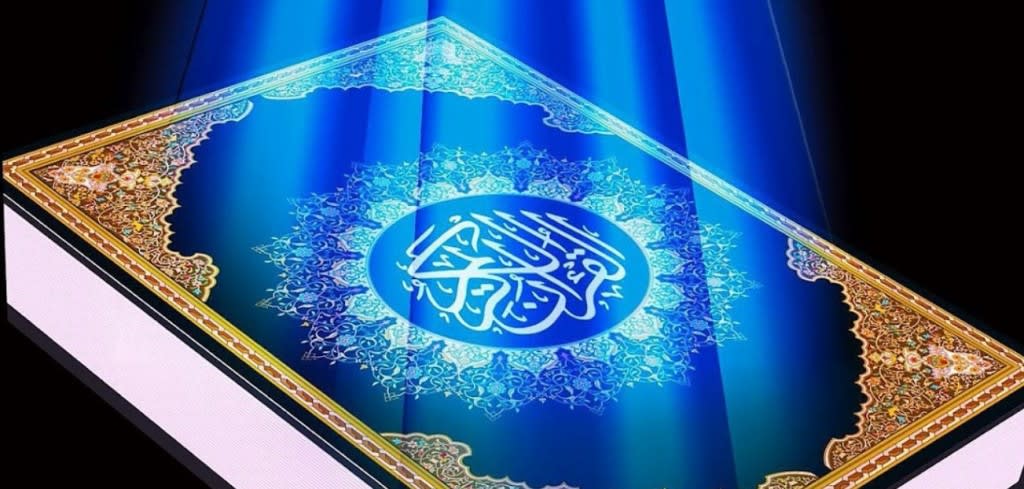A Divine Revelation of Guidance and wisdom
The Holy Quran

Title: The Holy Quran: A Divine Revelation of Guidance and Wisdom
The Holy Quran, also spelled as Qur'an, is the sacred scripture of Islam and is considered by Muslims to be the literal word of God as revealed to the Prophet Muhammad (peace be upon him) through the angel Gabriel. It is a book of profound guidance, wisdom, and spiritual significance for over a billion Muslims worldwide. With over 600 pages of content, the Quran is a comprehensive guide to life, morality, spirituality, and the relationship between humanity and the Creator.
Revelation and Compilation
The Quran's revelation began in the year 610 CE when Prophet Muhammad received his first revelation while meditating in the Cave of Hira near Mecca. Over a period of 23 years, the revelations continued, guiding Muslims in matters of faith, morality, law, and spirituality. The Quran was revealed in Arabic, and its eloquent prose is often considered a linguistic miracle.
The Quran is divided into 114 chapters known as Surahs, each varying in length. Surah Al-Baqarah (The Cow) is the longest, with 286 verses, while Surah Al-Kawthar (Abundance) is the shortest, with only three verses. Each Surah serves a unique purpose and addresses various aspects of life and faith.
Compilation of the Quran into a single, unified book took place during the Caliphate of the third Caliph, Uthman ibn Affan, in the early 7th century CE. This ensured the preservation of the Quran in its original form, free from alterations or omissions.
The Quran provides comprehensive guidance for Muslims in various aspects of life. It covers issues of faith, morality, ethics, family, society, governance, and spirituality. Muslims turn to the Quran to seek answers to questions about how to lead a righteous and purposeful life.
The Quran emphasizes monotheism (Tawheed) and the worship of the one true God (Allah). It teaches that all humans are equal before God and that righteousness and piety, not social status or wealth, are the criteria for measuring one's worth. It promotes the principles of justice, compassion, and charity and encourages believers to uphold these values in their daily lives.
Morality and Ethics
The Quran sets high moral and ethical standards for individuals and societies. It prohibits actions such as lying, stealing, murder, and adultery, while encouraging honesty, charity, humility, and forgiveness. It teaches that kindness to parents, neighbors, and the less fortunate is an essential part of a Muslim's character.
Family and Society
The Quran provides guidance on family life, emphasizing the importance of maintaining strong and loving family bonds. It outlines the rights and responsibilities of spouses and parents, advocating for fairness and kindness in all relationships. The Quran also addresses issues related to inheritance, marriage, and divorce.
Spirituality and Worship
A significant portion of the Quran focuses on spirituality and worship. It outlines the five pillars of Islam: the declaration of faith (Shahada), prayer (Salat), charity (Zakat), fasting during Ramadan (Sawm), and pilgrimage to Mecca (Hajj). These pillars serve as the foundation of a Muslim's faith and practice.
The Quran also contains many verses that encourage self-reflection, prayer, and seeking closeness to God. It emphasizes the importance of gratitude, patience, and reliance on God during times of difficulty.
Interpretation and Translation
Interpreting the Quran is a complex endeavor, as it requires an understanding of Arabic, Islamic jurisprudence, and the historical context in which it was revealed. Muslim scholars have developed a rich tradition of exegesis (Tafsir) to help elucidate the Quran's meanings and provide guidance for its application in contemporary contexts.
The Quran has been translated into numerous languages to make its message accessible to a global audience. However, Muslims still consider the Arabic text to be the only true Quran, and translations are viewed as interpretations of its meanings.
Conclusion
The Holy Quran stands as a timeless and profound source of guidance for Muslims and a significant cultural and religious treasure for humanity. With over 600 pages of content, it addresses a wide range of topics, providing a comprehensive framework for leading a virtuous and purposeful life. The Quran's message of monotheism, morality, ethics, family values, and spirituality continues to inspire and guide Muslims in their daily lives, fostering a deep sense of connection to God and a commitment to a just and compassionate way of life.
About the Creator
Abdullah Rajon
Experienced content writer skilled in SEO optimization, research, and deadline-driven delivery. Let's create engaging content together!






Comments (1)
Great work! Good job!